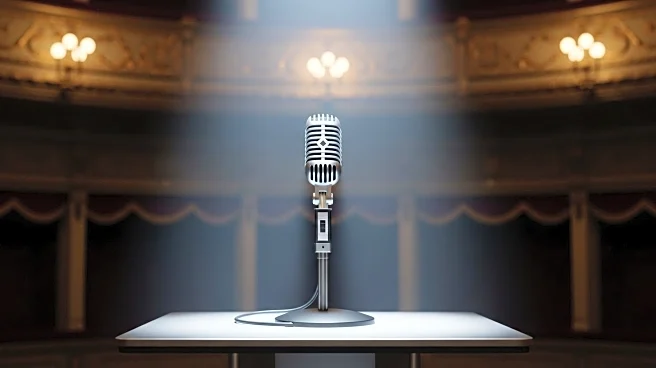What is the story about?
What's Happening?
Jane Fonda, an Oscar-winning actor and progressive activist, has relaunched the Committee for the First Amendment, a free speech initiative originally spearheaded by her father, Henry Fonda, during the 1940s. The initiative was formed in response to the rise of 'McCarthyism,' a period marked by heightened fear of communist infiltration and Soviet influence in the United States. The committee's statement, co-signed by nearly 600 figures from the entertainment industry, including Julia Louis-Dreyfus, Whoopi Goldberg, and Spike Lee, condemns what it perceives as a coordinated campaign by the federal government to silence critics across various sectors, including media and academia. The relaunch comes amid recent controversies, such as the suspension of Jimmy Kimmel's late-night talk show by ABC, which was criticized by the Federal Communications Committee chairman. Fonda, who has been a vocal advocate for numerous progressive causes, expressed her concern over the current political climate, describing it as the most frightening moment of her life.
Why It's Important?
The relaunch of the Committee for the First Amendment highlights ongoing concerns about freedom of speech in the United States, particularly within the entertainment industry. The initiative underscores the tension between government actions and artistic expression, reflecting broader societal debates about censorship and civil liberties. The involvement of high-profile celebrities amplifies the issue, potentially influencing public opinion and policy discussions. This development may impact how media and entertainment entities navigate political pressures, affecting content creation and distribution. The initiative also serves as a reminder of historical struggles for free speech, drawing parallels between past and present challenges faced by artists and activists.
What's Next?
The relaunch of the Committee for the First Amendment is likely to spark further debate and action within the entertainment industry and beyond. Stakeholders, including media companies and civil rights organizations, may respond by advocating for stronger protections of free speech. Political leaders could face increased pressure to address concerns about government overreach and censorship. The initiative may also inspire similar movements in other sectors, as individuals and groups seek to safeguard their rights to expression. As the situation evolves, the committee's activities and statements will be closely monitored for their impact on public discourse and policy.
Beyond the Headlines
The revival of the Committee for the First Amendment raises deeper questions about the balance between national security and individual freedoms. It challenges the ethical implications of government actions perceived as suppressive, prompting discussions about the role of dissent in a democratic society. The initiative may also influence cultural perceptions of activism, encouraging more individuals to engage in political discourse and advocacy. Long-term, this movement could contribute to shifts in how freedom of speech is protected and valued in the United States, potentially leading to legislative changes or new legal precedents.















